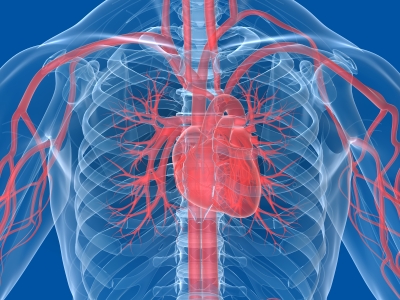Walking into your kitchen and taking a single multivitamin pill to cover your recommended daily allowance (RDA) of vitamins and minerals is so convenient. You don’t have to think about nutrition for the rest of the day! You’re covered!
Not so fast…
Sadly, scientists are discovering that pill multivitamins do very little good…and could actually be dangerous to your health.
The Myth of the Multivitamin
We’re told that taking vitamins will protect our bodies from illness. Take this pill to make your bones stronger. Take this pill to sharpen your memory. There is a supplement for everything that ails you…but what does the science prove?
One study from Oxford University followed 20,000 people for five years. Half the study participants were given placebos [pills with no nutritional value] while the other half were given pills that contained a mix of vitamin C, vitamin E and beta-carotene.
At the conclusion of the study – neither group showed any benefits. There was no additional protection from heart disease, cancer, eye health or bone health. 
Dr. Jane Armitage, who worked on The Heart Protection Study at Oxford, explained, “The vitamins were absorbed but they did nothing.”
Researchers believe it is due to the synthetic chemistry of the vitamins. Our bodies are unable to recognize – or use – synthetic vitamins.
Biochemist Eric Llewellyn adds that synthetic vitamins can actually cause vitamin deficiency.
He pointed to calcium supplements taken to prevent osteoporosis as an example. “For calcium to enter the bones, it needs to be attached to a phosphate molecule. When the supplement enters the blood, the body takes phosphate out of the bones to stick it to the calcium. The bones end up with less phosphate and no added calcium, so the calcium supplement is actually making the bones weaker.”
What are possible alternatives to multivitamins?
The Power of Vitamin-Rich Food
If you eat a balanced diet, packed with fruits and vegetables, you may be getting all the recommended nutrition you need.
- Eggs, orange and red veggies, and tuna provide your body with vitamin A – crucial to your immune system, vision and skin.
- Peanuts, asparagus and cauliflower give you ample vitamin B1 (thiamine) – needed for optimal brain function and energy.
- Oats, eggs and mushrooms provide vitamin B2 (riboflavin) – needed to convert food to energy and balance your pH.
- Salmon, cabbage and kidney beans boost your levels of vitamin B6 – which acts as a natural anti-depressant and regulates your sex hormones.
- Broccoli, peppers, citrus and berries boost your levels of vitamin C – used to strengthen immunity, fight infection and keep bones strong.
- Seeds, nuts and fatty fish such as salmon and tuna provide both vitamin E and omega-3 fatty acids – critical to brain function, a strong immune system and cell membranes.
- Sunshine naturally boosts your vitamin D levels and is required to absorb calcium, protect the heart and preserve the central nervous system.
However, pro-supplement researchers point out that the average person does not consume a balanced diet. They also emphasize the fact that the nutritional value of our food is drastically lower than it once was.
Patrick Holford, founder of the Institute for Optimum Nutrition, said, “Levels of key minerals, such as potassium, magnesium, calcium and iron in our soils, have fallen by almost 50 per cent over the past 50 years.”
The water in many parts of the world test positive for contaminants. Produce can sit in cold storage for months before making it to your grocery store – slowly losing the majority of the vitamins and minerals it once offered due to oxidation.
If you don’t have access to organically grown produce, you also run the risk of chemical pesticide contamination.
The Natural Alternatives to Multivitamins
Before taking any supplement you should consult your doctor to discuss possible reactions with medications you’re currently taking. Children and women who are pregnant or nursing should always include their doctor in nutritional decisions.
Juicing and green smoothies provide raw concentrations of vitamins and minerals in a single serving – much like a vitamin supplement – without the synthetic ingredients. They are easy to customize for taste and caloric intake. They are better for you (and less expensive) when you make them at home.
The Organic Consumers Association says raw supplements are 100% plant-based or food-based – providing you the advertised benefits without the additives you don’t need.
One such raw supplement uses eight superfoods considered to be the most nutrient-dense on earth.
Whether you choose nutrient-rich food, juicing, green smoothies or a raw supplement – all effective and safe alternatives to synthetic multivitamins – getting the nutrition your body needs is the key to total body wellness.




